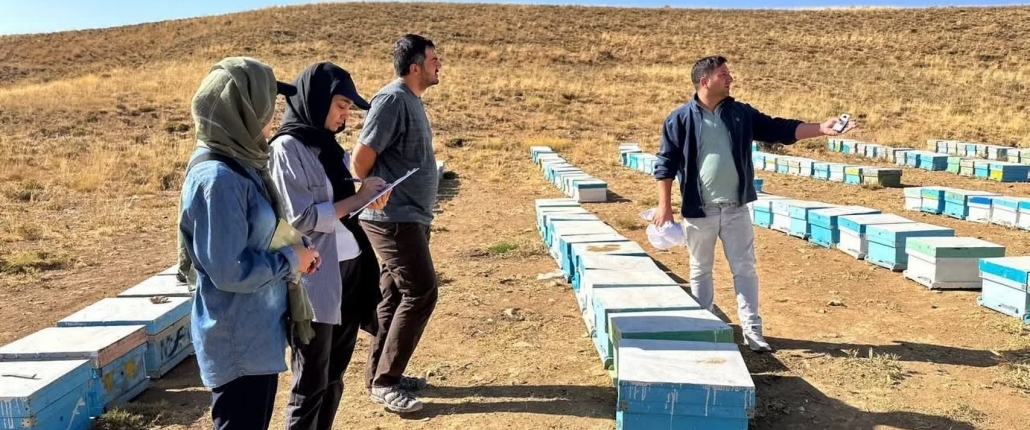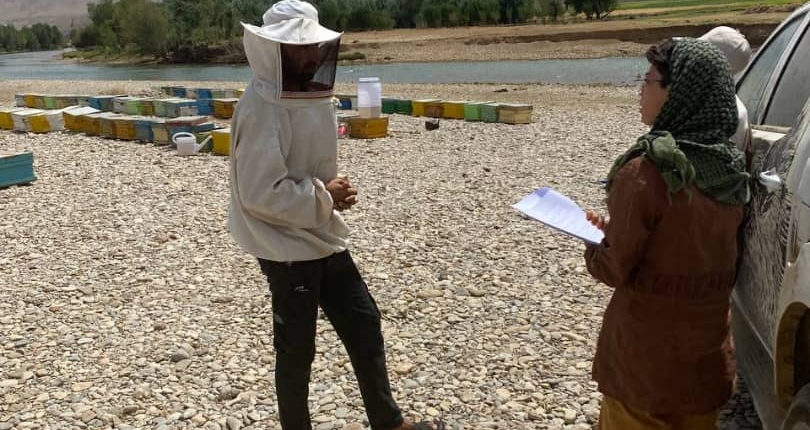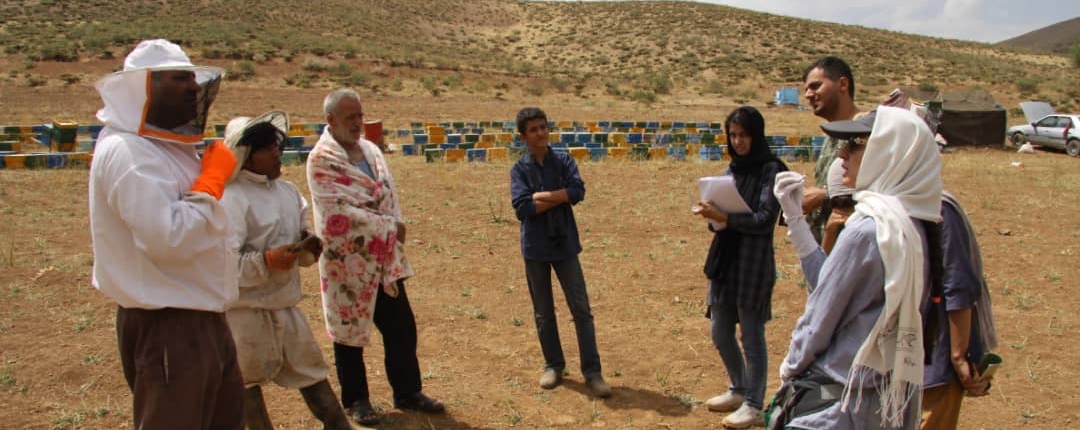Controlling the Conflict Between Beekeepers and Bee-Eaters
Collaborative Efforts to Mitigate Human-Wildlife Conflict and Protect Ecosystems
In many regions across Iran, beekeepers consider bee-eaters a significant threat to their hives and honeybees. Each bee-eater can consume a large number of bees daily. Since these birds live in groups, their encounter with honey production hives during migration can cause substantial losses for beekeepers. This has led to widespread conflict between bee-eaters and beekeepers. One method commonly used by beekeepers to mitigate this issue is poisoning, using bees laced with pesticides like diazinon. Unfortunately, this practice not only kills valuable bee-eater species but also introduces harmful chemicals into the ecosystem, affecting other wildlife that consume the poisoned birds and contaminating the food chain.
Project Objectives and Implementation
The AvayeBoom Bird Conservation Society began studying this issue in 2020 and developed an educational and advisory catalog. This catalog introduces the bee-eater, highlights its ecological importance, and compiles various methods to reduce conflicts between bee-eaters and beekeepers, both locally and globally.
Given that center of Iran has over 30,000 beekeepers, specific hotspots of conflict were selected as pilot areas for the project. The Society engaged directly with beekeepers, providing the catalog and educational insights. Beekeepers’ opinions and suggestions were gathered through questionnaires to ensure their feedback was considered.
Key Aspects of the Project
Financial Support: The project is financially supported by Nazre Tabiat NGO through public donations.
Pilot Areas: Three pilot areas were selected based on evidence of conflict hotspots.
Education: Beekeepers were taught on-site at their work locations, addressing specific reasons for increased conflicts.
Evaluation: A pre-test was conducted with all beekeepers, and a post-test will follow to estimate the project’s impact.
Outcomes and Future Steps
The data collected from beekeepers’ feedback will be analyzed by the project’s biodiversity expert to create final content suitable for future educational and research initiatives. This project aims to reduce environmental hazards associated with chemical pest control, protect bee-eaters from poisoning, and promote sustainable coexistence between beekeepers and bee-eaters.
Acknowledgments
The AvayeBoom Bird Conservation Society extends its sincere gratitude to Nazre Tabiat NGO for their financial support and to all the beekeepers who participated in the project. This joint effort highlights the importance of collaboration in resolving human-wildlife conflicts.










Leave a Reply
Want to join the discussion?Feel free to contribute!